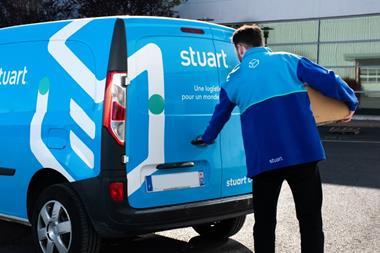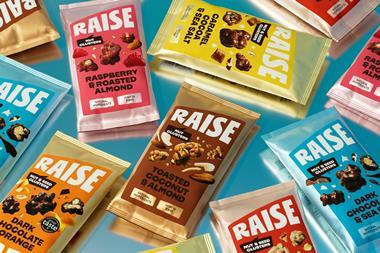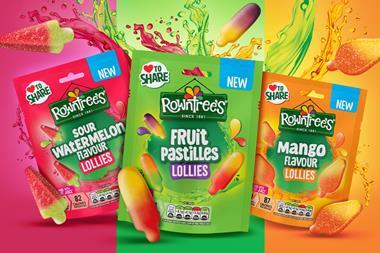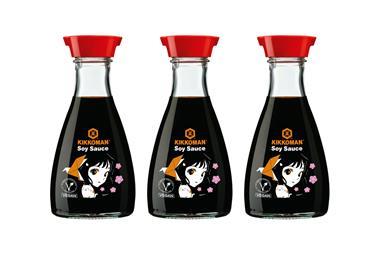It's a sight you might see in any of the campsites and surf shacks around the holiday town of Newquay, Cornwall, in June or July a 4x4 vehicle pulls up and proud middle-class parents help their 16- or 17-year-old offspring, here to celebrate the end of exams, to unload tents, sleeping bags, surf boards and crates of booze.
"Parents might think they're doing the right thing, but when young people drink to excess it can compromise their personal safety and increase the chances of them having unprotected sex or being involved in an accident," Sorek says.
The deaths of two young men during last year's celebrations in the town underline his point. This year, Drinkaware is part of a massive initiative to stop the under-18 visitors drinking, through a combined approach of both education and strict enforcement. It has taken over a café on the popular Fistral Beach to create an alcohol-free venue where friends can meet and eat while having access to alcohol facts and information.
The Newquay Safe Partnership, including the police, Cornwall Council Licensing, Fire and Rescue Service and Environmental Health, has been checking ages, confiscating alcohol (458 cans and bottles over the weekend of July 3) and demanding that parents come to collect children who have been found to be drunk in public.
The town's retailers, meanwhile, have agreed to accept only passports and driving licences as proof of age, and have been subject to vigorous test purchase operations. While the results of these tests are not yet available, Newquay Safe's report of last summer's crackdown reveals there were no test purchase failures in the six weeks to the end of July. Instead, it identifies street trading which has been banned this year and "18-year-olds and above purchasing alcohol in off licences and then giving it to underage friends" as top-up sources after the parental stash has run out.
While Newquay's reputation as a young person's resort compounds its problems, it is not unique. The town's authorities should be applauded for their vision the model they have developed acknowledges there are far more serious issues to be addressed than can be solved by simply blaming retailers. It's one that could be replicated elsewhere, and its success shows that any effort to prevent alcohol reaching under-18s must focus not just on the retail trade, but somewhere much closer to home.
What you can do in your town:
Contact your local authority or police liaison officer and explain to them how a proxy crackdown would reduce youth drinking and social disorder in your area Demonstrate your responsible approach to selling alcohol with a Challenge 25 policy, keep an up-to-date refusals register and carry out ongoing staff training Volunteer your knowledge of the local community including CCTV footage to help prosecute adults who buy for children, and illicit traders who sell duty-avoiding goods.
Chris Sorek, chief executive of Drinkaware, has witnessed these alcohol-laced drop-offs. The alcohol awareness charity's research recently found that more than half (53%) of these parents give their kids five or more bottles of spirits or wine. More than a third (36%) say it's because they would prefer their child to get alcohol from them rather than an unknown source. Contact your local authority or police liaison officer and explain to them how a proxy crackdown would reduce youth drinking and social disorder in your area Demonstrate your responsible approach to selling alcohol with a Challenge 25 policy, keep an up-to-date refusals register and carry out ongoing staff training Volunteer your knowledge of the local community including CCTV footage to help prosecute adults who buy for children, and illicit traders who sell duty-avoiding goods.
"Parents might think they're doing the right thing, but when young people drink to excess it can compromise their personal safety and increase the chances of them having unprotected sex or being involved in an accident," Sorek says.
The deaths of two young men during last year's celebrations in the town underline his point. This year, Drinkaware is part of a massive initiative to stop the under-18 visitors drinking, through a combined approach of both education and strict enforcement. It has taken over a café on the popular Fistral Beach to create an alcohol-free venue where friends can meet and eat while having access to alcohol facts and information.
The Newquay Safe Partnership, including the police, Cornwall Council Licensing, Fire and Rescue Service and Environmental Health, has been checking ages, confiscating alcohol (458 cans and bottles over the weekend of July 3) and demanding that parents come to collect children who have been found to be drunk in public.
The town's retailers, meanwhile, have agreed to accept only passports and driving licences as proof of age, and have been subject to vigorous test purchase operations. While the results of these tests are not yet available, Newquay Safe's report of last summer's crackdown reveals there were no test purchase failures in the six weeks to the end of July. Instead, it identifies street trading which has been banned this year and "18-year-olds and above purchasing alcohol in off licences and then giving it to underage friends" as top-up sources after the parental stash has run out.
While Newquay's reputation as a young person's resort compounds its problems, it is not unique. The town's authorities should be applauded for their vision the model they have developed acknowledges there are far more serious issues to be addressed than can be solved by simply blaming retailers. It's one that could be replicated elsewhere, and its success shows that any effort to prevent alcohol reaching under-18s must focus not just on the retail trade, but somewhere much closer to home.
How Newquay is tackling un
Tourist accommodation will be visited and alcohol confiscated police say that alcohol found in last year's searches was not purchased in Newquay
Premises must have the required staff on site, parental consent forms and guests must be aware of the no alcohol on the premises rules
Young people will be turned away from clubs and bars without the correct ID, or because they have alcohol on them
Parents of young people drunk or incapable will be contacted to come and collect them. Those returned home will be visited by their local police and under-18s will be told that their parents will be made aware of any anti-social behaviour
Test purchases by Cornwall Council Trading Standards
Alcohol advice given at train stations and airports to young people and anyone found with alcohol or drugs
Confiscation of alcohol from young people in the street and on beaches
Alcohol testing strips used to identify the contents of drinks containers
Town marshalls employed under the Street Safe scheme to support police activity.
Tourist accommodation will be visited and alcohol confiscated police say that alcohol found in last year's searches was not purchased in Newquay
Premises must have the required staff on site, parental consent forms and guests must be aware of the no alcohol on the premises rules
Young people will be turned away from clubs and bars without the correct ID, or because they have alcohol on them
Parents of young people drunk or incapable will be contacted to come and collect them. Those returned home will be visited by their local police and under-18s will be told that their parents will be made aware of any anti-social behaviour
Test purchases by Cornwall Council Trading Standards
Alcohol advice given at train stations and airports to young people and anyone found with alcohol or drugs
Confiscation of alcohol from young people in the street and on beaches
Alcohol testing strips used to identify the contents of drinks containers
Town marshalls employed under the Street Safe scheme to support police activity.





























No comments yet